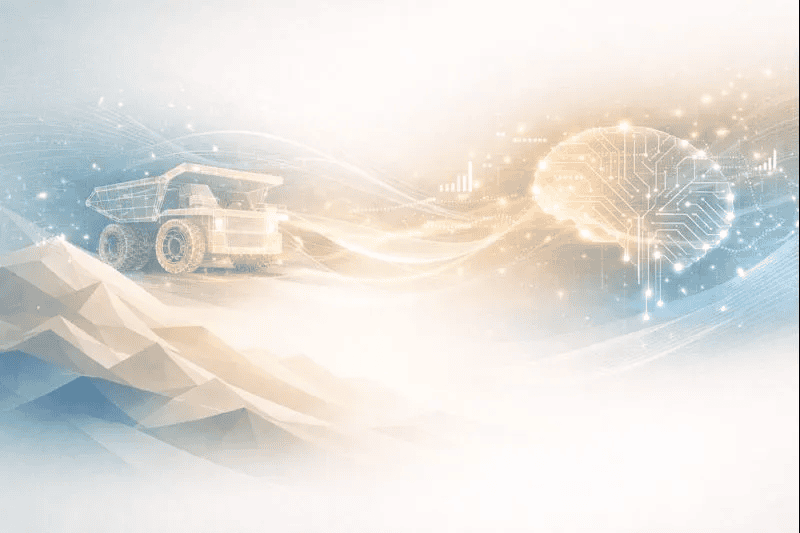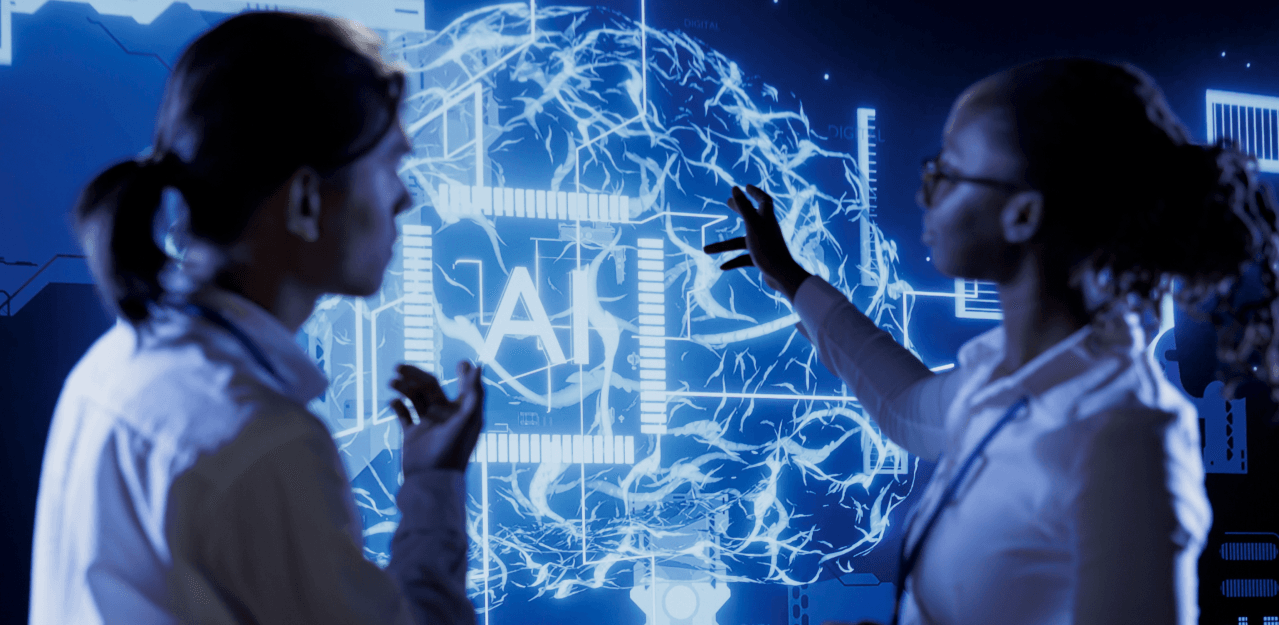What happens when a business recognizes the potential of AI but feels uncertain about where to start? Adopting AI can feel daunting for many companies that are juggling growth ambitions with limited resources. This is a story of a mid-sized manufacturing firm, brimming with ambitions for growth, yet feeling increasingly adrift in a sea of digital disruption. They recognized the immense potential of AI but were hampered by a lack of understanding and a clear path forward. Their journey, much like that of many other organizations, illustrates the transformative power of a strategic approach to AI adoption, driven by a strong foundation of AI readiness.
The Problem: Struggling to Keep Pace
The manufacturing firm was ambitious, fueled by aspirations to grow and innovate. However, it was struggling to keep up despite recognizing the potential of AI. The leadership team realized that without a structured approach, their efforts could be misdirected, leading to wasted resources and missed opportunities. This realization prompted the firm to seek out a partner who could guide them through an AI readiness assessment. The goal was to gain a thorough understanding of their current digital maturity level and identify specific areas where AI could make the most significant impact. By partnering with Random Walk, the firm took the first crucial step towards a data-driven future.
Identifying the Gaps: The Role of an AI Readiness Assessment
The company turned to an AI readiness assessment to evaluate its digital maturity and identify specific areas for improvement. This tool is designed to provide a comprehensive evaluation of an organization's preparedness for AI adoption, covering various dimensions such as technology infrastructure, organizational culture, and strategic alignment. The assessment process involved a series of detailed analyses and evaluations across different departments within the firm. This comprehensive evaluation revealed:
- ● Digital maturity deficiencies in key areas, particularly customer-facing departments like service and marketing.
- ● A lack of AI literacy and alignment across teams, which created hesitation and slowed decision-making.
- ● Outdated data infrastructure that was unable to support advanced AI applications.
These findings highlighted the critical need for a structured approach to building an AI-ready culture.
Armed with the findings from the AI readiness assessment, the manufacturing firm gained a clearer picture of its strengths and weaknesses. The exposed deficiencies served as a roadmap for prioritizing investments and initiatives that would address these gaps and set the stage for successful AI adoption. Their approach involved three key steps.
Modernizing Data Infrastructure
One of the key takeaways from the AI readiness assessment was the need for a centralized data lake. Hence, the company focused on overhauling its outdated digital systems to create a robust foundation for AI applications. The firm's existing data infrastructure was fragmented, making it difficult to derive meaningful insights and support AI applications. By investing in modernizing core systems and creating a centralized data lake, the company aimed to establish a robust foundation for AI-powered solutions. New frameworks ensured data accuracy, consistency, and compliance, creating a reliable base for AI tools. These upgrades not only supported immediate AI implementations but also positioned the company for future scalability.
Fostering a Culture of Innovation and Continuous Improvement
Recognizing the critical role of organizational culture in AI adoption, the manufacturing firm emphasized fostering innovation and continuous improvement. The goal was to create an environment where employees felt empowered to explore new ideas and refine processes.
To achieve this, cross-functional teams were established to identify AI integration opportunities, develop pilot projects, and share insights. Regular brainstorming sessions encouraged collaboration and creativity, allowing employees to contribute their unique perspectives.
A feedback loop mechanism was implemented to capture lessons learned from AI initiatives, promoting continuous learning and optimizing outcomes. Employees documented experiences and challenges, which were analyzed and disseminated throughout the organization.
Additionally, the firm focused on upskilling employees by providing formal training and hands-on experience through workshops and practical projects. This holistic approach enhanced technical capabilities and instilled a sense of ownership and responsibility among employees, making them active participants in the company's AI readiness journey and driving its digital transformation forward.
Implementing AI-Powered Solutions
With the groundwork laid, the company introduced targeted AI solutions to address its most pressing challenges.
One of the most impactful initiatives was the deployment of AI-powered chatbots in the customer service department. These chatbots were designed to enhance customer service experiences by providing instant responses to common queries, resolving issues efficiently, and offering personalized recommendations based on customer data.
The chatbots proved to be a game-changer, significantly improving customer satisfaction and reducing response times. Customers appreciated the seamless and efficient service, leading to increased loyalty and positive word-of-mouth referrals. The success of the chatbot initiative encouraged the firm to explore other AI applications that could drive similar results.
In the marketing department, the firm developed data-driven marketing campaigns using AI algorithms. These campaigns leveraged customer data to deliver targeted product recommendations, resulting in higher conversion rates and increased sales. The AI-powered marketing strategies enabled the firm to reach the right customers at the right time, maximizing the return on investment for each campaign.
The Results: Transformative Impact
The company's AI journey yielded remarkable results, significantly enhancing customer satisfaction. With the implementation of AI-powered chatbots and tailored interactions, customers experienced faster response times and more personalized service. This shift streamlined communication and created a more engaging and satisfying experience for users. As a result, customer feedback improved markedly, reflecting the positive impact. The company saw a notable increase in sales conversions. Data-driven marketing campaigns were able to deliver highly targeted messaging that resonated with their audience. This strategic approach led to more successful outcomes, driving higher conversion rates and boosting overall revenue.
Moreover, the thoughtful integration of AI positioned the company as an innovative leader within its industry, giving it a competitive edge. The success of these AI initiatives had a ripple effect across the organization, inspiring other departments to explore similar opportunities. Teams began to recognize the potential of AI in enhancing their operations, leading to a culture of innovation and continuous improvement. As various departments started adopting AI solutions, the company's overall performance improved, solidifying its reputation as a forward-thinking and technologically advanced enterprise.
This manufacturing firm’s journey illustrates that AI is not an exclusive domain for tech giants. With the right tools and a clear strategy, even mid-sized companies can harness AI to drive growth, innovation, and customer satisfaction.
The Bigger Picture: A Challenge Many Companies Face
This manufacturing firm's story is far from unique. The struggle to bridge the gap between AI ambition and execution is widespread. According to the BCG 2024 AI Adoption Report, most organizations face challenges not in AI technology itself, but in their readiness to integrate and scale AI effectively. This common hurdle underscores the importance of a structured approach to AI adoption, one that begins with a thorough understanding of an organization's current capabilities and future potential.
To address this challenge head-on, companies can take the first step with Random Walk's 15-minute AI Readiness Assessment Test. This quick yet comprehensive evaluation will provide you with a clear understanding of where you stand in your AI readiness journey. By identifying your current strengths and areas for improvement, you'll gain valuable insights tailored specifically to your unique use cases. Rest assured, our team of experts is here to guide you every step of the way, helping you develop a customized strategy that maximizes the potential of AI for your business. With this assessment as a foundation, organizations can navigate the complexities of AI integration more confidently, ensuring that their ambitions are matched by effective execution.






